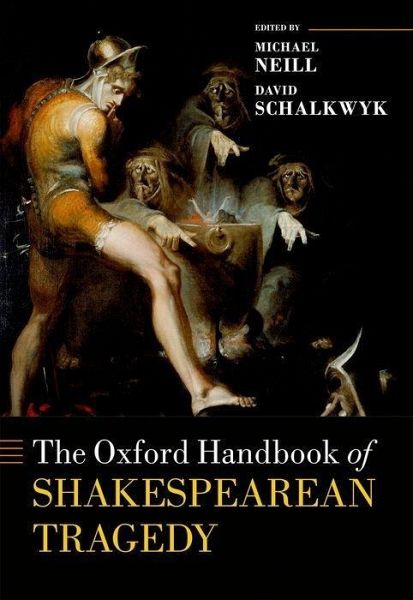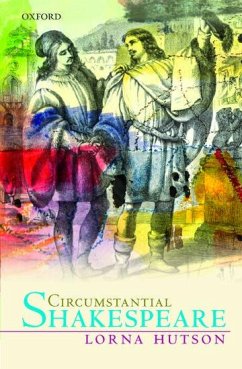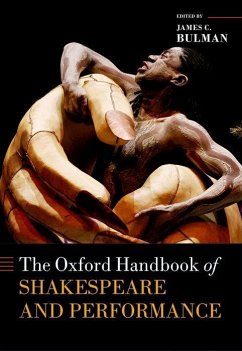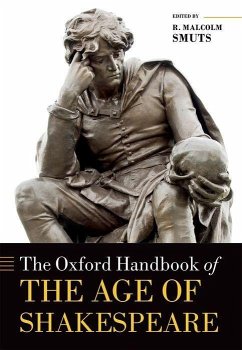
The Oxford Handbook of Shakespearean Tragedy
Versandkostenfrei!
Versandfertig in über 4 Wochen
206,99 €
inkl. MwSt.

PAYBACK Punkte
103 °P sammeln!
The Oxford Handbook of Shakespearean Tragedy is a collection of fifty-four essays by a range of scholars from all parts of the world, bringing together some of the best-known writers in the field with a strong selection of younger Shakespeareans. Together these essays offer readers a fresh and comprehensive understanding of Shakespeare tragedies as both works of literature and as performance texts written by a playwright who was himself an experienced actor. The collection is organised in five sections. The substantial opening section introduces the plays by placing them in a variety of illumi...
The Oxford Handbook of Shakespearean Tragedy is a collection of fifty-four essays by a range of scholars from all parts of the world, bringing together some of the best-known writers in the field with a strong selection of younger Shakespeareans. Together these essays offer readers a fresh and comprehensive understanding of Shakespeare tragedies as both works of literature and as performance texts written by a playwright who was himself an experienced actor. The collection is organised in five sections. The substantial opening section introduces the plays by placing them in a variety of illuminating contexts: as well looking at ways in which later generations of critics have shaped our idea of 'Shakespearean' tragedy, it addresses questions of genre by examining the playwright's inheritance from the classical and medieval past, by considering tragedy's relationship to other genres (including history plays, tragicomedy, and satiric drama), and by showing how Shakespeare's tragedies respond to the pressures of early modern politics, religion, and ideas about humanity and the natural world. The second section is devoted to current textual issues; while the third offers new critical readings of each of the tragedies, from Titus Andronicus to Coriolanus. This is set beside a group of essays that deal with performance history, with screen productions, and with versions devised for the operatic stage, as well as with the extraordinary diversity of twentieth and twenty-first century re-workings of Shakespearean tragedy. The thirteen essays of the book's final section seek to expand readers' awareness of Shakespeare's global reach, tracing histories of criticism and performance across Europe, the Americas, Australasia, the Middle East, Africa, India, and East Asia. Offering the richest and most diverse collection of approaches to Shakespearean tragedy currently available, the Handbook will be an indispensable resource for students both undergraduate and graduate levels, while the lively and provocative character of its essays make will it required reading for teachers of Shakespeare everywhere.












